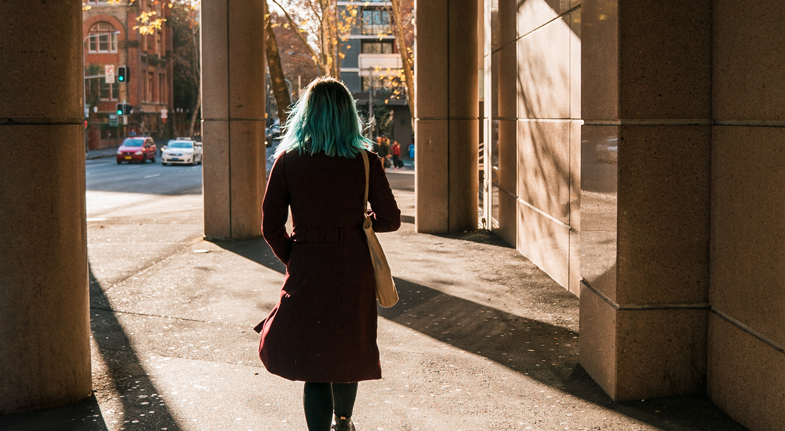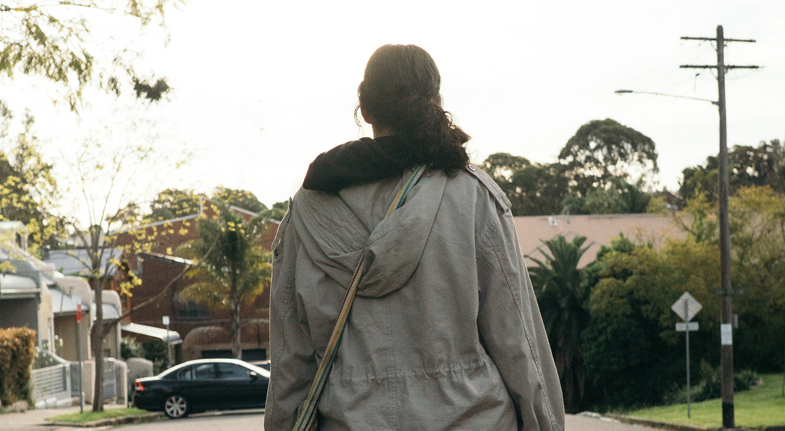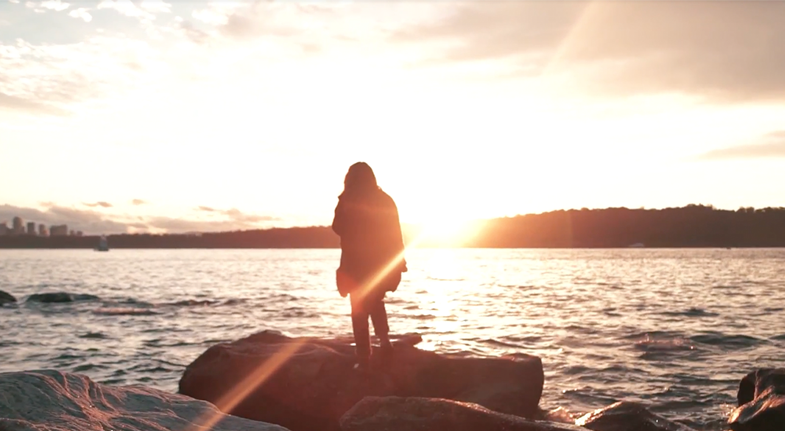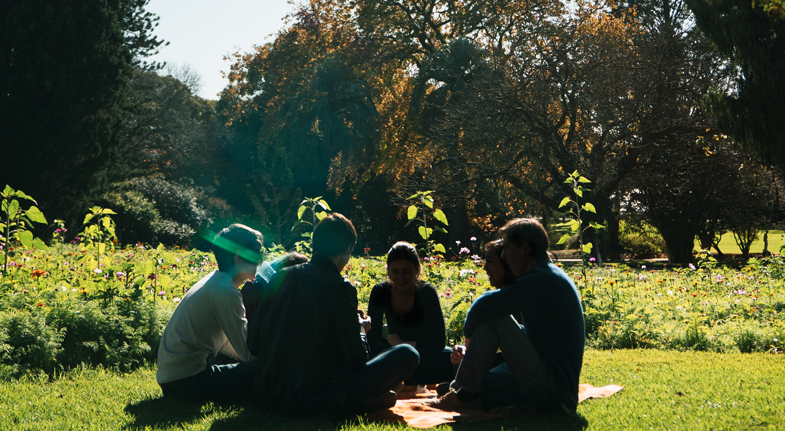No results were found
Planning your future
Your leaving care (my future) plan, financial support, getting a job, housing information and family
Planning for your future

Leaving care is a technical term that is used in legislation, but all it means is that you are no longer formally in the care of the Minister. Instead of using the language of leaving care plan, My Future Plan is another way you can refer to your planning. Leaving care doesn’t mean you won’t get help to set yourself up, that will be included in your leaving care (my future) plan. It also doesn’t mean you have to leave where you are currently living, that is up to you and your carer. If you have to leave where you are living, your leaving care (my future) plan needs to outline where you will live.
"Caseworkers ask you - what do you want to do when you're older"~ Youth Representative*
It starts at 15
Leaving care (my future) planning starts at the age of 15. This is to give you 3 years to work with your caseworker, carer/residential staff, and family to:
- practice living skills,
- make decisions about your future,
- gain all the information and support required to put a plan together for when you transition from care.

Public Guardian
When you turn 15, planning for your future begins. It is important that your thoughts and wishes are heard. Planning may work well if you have the right support and people understand what is important to you. Sometimes there is not enough support for you to have a voice in making the plan. It may be that other people disagree with what is best for you, or no one speaking up for what matters to you and you have a disability that makes it more difficult to communicate your wishes.
If you don't have support to make decisions about your future plan and have a disability, an application can be made to have the Public Guardian be your advocate. The application should be made by your case worker. The Public Guardian cannot make any decisions for you but will listen to what is important to you and advocate for this to be in your plan. The Public Guardian's advocacy will also be to encourage others to provide you with the right support for making decisions and check if this is working well.

What's in your future plan (Leaving Care Plan)

These plans are for you and your future! Your input is really important. Talking to your caseworker to make sure you are a part of what goes into this plan is the first step. Sometimes you may not always know what your future may look like and it can then be hard to put this into writing. The aim of the plan is to map out what support can look like for you.
Things to consider are:
- Where are you planning on living? Independent living, a flatmate, moving to be near work or study, or will you stay on with your carer? Consider using the Living Arrangement Agreement discussion guide PDF, 567.75 KB and template DOCX, 34.97 KB to help agree on how living together will work.
- Would you like to study after school? TAFE? University? Why Not You Project Apprenticeship? What kind of courses are you interested in?
- Are you working, or would you like a job? Have you got a resume?
- What will contact with your family look like? Do you have siblings who will still be in care that you would like contact with?
- If you are in statutory OOHC, make sure you add applying for TILA (Transition to Independence Allowance) to your plan, This is a one-off payment of $1500 to you which can be used to buy items such as a fridge or couch, pay for counselling, education and training courses, medical expenses, a drivers licence or any other items or services agreed between the young person and their case worker.
- Have you considered whether you would like to access the file with your information?
- Are you enrolled to vote?
- Aim to have all your identification ready; birth certificate, proof of age, licence .
- Would you like some driving lessons to help you get your licence ?
- Have you got a bank account, or tax file number set up?
- Will you require Youth Allowance?
- Are you eligible for support through the Victims Support Scheme? If so, has your caseworker started the application process?
- Would you like ongoing counselling, or another program to support you?
- Do you need support with any ongoing health or medical challenges?
- How will you keep connected to your culture? NSW Aboriginal Land Council Link-Up NSW
Some of these considerations may be already achieved before you transition from care. This plan is in place for you until the age of 25 years. The plan needs to be signed off by your NGO and DCJ because often the plan requires things to be paid for.
"It’s ok if you don’t know what to do, think of the things that you like, look at your interests if you are not sure what you want to do"~ Youth Representative*
You can apply for money

Transition to Independent Living Allowance (TILA) is a one-off payment of up to $1,500 per person. In order to access TILA you need to have this in your leaving care (my future) plan and be aged between 15-25yrs of age. This money can be used to buy items such as a fridge or couch, pay for counselling, education and training courses, medical expenses, a drivers licence or any other items or services agreed between the young person and their caseworker. Your caseworker can help you apply for this.
Caseworkers must apply on your behalf using the NSW TILA application form and sending it to SYFS via tilansw@syfs.org.au or fax 4240 4891.
It's good to get TILA - put in your plan"
Youth Representative*
You may be able to get help from Victims Services

Some young people who have been in OOHC are eligible for support from Victims Services. There are different types of support available depending on the situation, including counselling and financial support. While you are in care your caseworker must check your file to find out if you are eligible, and take care of all the paperwork for you. If you are not sure whether your file has been checked, or if you might be eligible, you should talk to your caseworker. You can ask your caseworker: Am I eligible for victims of crime support? If so, am I involved in the process? What needs to be provided to get victim’s of crime support? You can download Justice Journey App
You can call victim services ph: 1800 633 063 (freecall number), or Aboriginal Contact Line ph: 1800 019 123 (freecall number) or email vs@justice.nsw.gov.au.
"It’s good to get TILA –put it in your plan"~ Youth Representative*
You can get legal help
The Community Legal centre NSW website lists your closest community legal centre. There is also the Marrickville Legal Centre (02 9559 2899), Shopfront Legal Centre (02 9360 1847), Legal Aid Centre’s all through NSW, that can direct you to the best support. There is also a Youth Hotline (1800 10 18 10) which provides legal advice and information to young people under 18, and operates 9am to midnight weekdays, with a 24-hour service from Friday 9am to Sunday midnight and also on public holidays. See also Lawstuff. You can download the NSW Court List App.

Managing Finances
Keeping an eye on your money and budgeting is good. There is a lot of information available to learn about bank cards, credit cards, superannuation, tax, how to save, and Centrelink options. Don’t be overwhelmed - check out Money Smart. Download Your Next Step – Preparing young people for leaving care PDF, 5606.77 KB. It has practical information on for example, paying tax and lodging a tax return and starting work.
Watch out for scams, schemes and impulse buying that is “too good to be true”. Avoid credit cards (that charge interest if you can’t pay them off each month) and afterpay if you’re still working out your budget and starting to save.

You can get help getting your driver licence
It can be difficult to complete all your driving hours and gain your ‘Ps’ (provisional) licence.
It is a good idea to talk about this with your caseworker when they are preparing your leaving care (my future) plan as they can help you with a number of free lessons. You will find that there are many more driving hours that you will have to do before you gain your licence. There are some organisations that may be able to support you, although some have eligibility requirements. You may need to ask your caseworker to help you reach out to an organization that helps with driving hours.
Birrang: Supports you in getting your Learners licence, and log driving hours.
Driving Change: Supports you in gaining your Learners licence and log driving hours.
Keys2Drive: Offers one free lesson with a driving instructor.
There are various locations in which these companies run their programs.
There is also a free Safer Drivers course that you may be eligible for once you have completed 50 hours of log book driving time.

You can get a job
There are some rules about what age and what hours you can work in NSW. Talk to your carer caseworker or support worker about your options. Think about:
- what kind of work am I interested in?
- how often would I like to work ?
- what hours would I like to work?
- how far am I willing to travel to work?
- how ready am I for work?
- how will I get to work ?
Getting things like a resume, references, tax file number, and a plan in place to manage your education (School/TAFE/University), your social life, and work are some of the first steps.

Working with a juvenile justice record
If you have a juvenile justice record, it should not stop you from seeking employment. It is important to have a chat to a free legal service who can advise you on your best options around employment as it can differ depending on your juvenile justice record. In some cases, if you are under 16 years of age your juvenile justice record will not be recorded on your criminal record. In some employment there are Working with Children Checks and Police Checks that need to be cleared before you can start employment.
Questions to ask a legal representative could include:
- Will I be cleared for a Working with Children’s Check if I have been charged as a juvenile?
- Will I be cleared for a National Police Check if I have been charged as a juvenile?
- Will my charges be spent, and how long is this process?
- I would like to dispute my criminal record that has affected my National Police check, can I?
- Am I required to disclose information about my juvenile justice record?
Your Juvenile Justice officer should also be able to support you with the next steps to getting a job.
Paying off a Fine: The NSW Government created a Work Development Order so eligible young people could pay off a fine by either doing unpaid work, attending a course or – where it’s needed – receiving medical treatment or counselling.
Your case worker will talk to you about whether you are eligible to pay off a fine this way and the types of unpaid work, study or treatments you could access. Talk to your caseworker if you do have fines and you’re worried you can’t pay them.
You might get triggered at work
You might get triggered at work from some of your past experiences. It is really important that you start to identify what your triggers are and what happens for you when you are triggered.
It helps to talk to someone who can support you to put strategies in place while you are at work to manage your triggers so that work is a better experience for you.

You can get help if you're being bullied at work
Being bullied is not ok and is not acceptable in the workplace. There is support available to help you feel comfortable and respected in the workplace. Depending on the situation, the kind of support available can vary. The first step is get advice on what next steps to take. Your work may have a Human Resources department you can get confidential support from. The NSW Fair Work Ombudsman also has good information. Fair Work Videos: Young Workers Best Practice Guide , Know Your Workplace Rights, and Job Trial Fails.

Finding somewhere to live
Figuring out your living arrangements is important for your future. If you happen to be moving house you are allowed to keep any personal effects, clothing, equipment such as car seats, wheelchairs or furniture that may have been purchased specially for you while in care. There are a range of supports to help you look for places to live, study and work to make this transition as easy as possible.
If you’re really struggling, couch surfing or without somewhere to live contact your caseworker or Agency. They can connect you to emergency accommodation and housing pathways, or help set you up with renting.
Talk to your university or TAFE about student housing. They often have accommodation options.

Where to start
Your caseworker would have helped you develop your leaving care (my future) plan which would have included plans for living, studying and work arrangements. If you haven’t done this already, speak with your caseworker about it. Your plan can also be updated, so don’t worry if you change your mind about something or if your situation changes – it’s important to have a variety of options for this reason.

Simple steps for early planning
Early planning around your next move is the best way to ensure you get the right support. Talk to your caseworker and /or carer about whether you’ll be staying on in the home or looking at other options like renting, sharing a flat, or student accommodation.
Here are some things to think about:
- Do you want to rent your own place, or share with others?
- Do you need help finding the right place, and to learn how to pay rent?
- Do you need more than your Youth Allowance to help pay your rent?
- What about finding a job, or studying?
Whether you rent on your own or share with others, consider how you would pay the bills, look after the place and maintain good relationships with your landlord and neighbours. When you do start renting and you need support at any time, even if you’re having trouble with a landlord, reach out to Tenant Help and the Tenants Advice and Advocacy Service.

If you plan to live somewhere, but need to help with rent
DCJ Housing may be able to help you find a place to live, and help pay the rent. If you’re aged between 16-25, want to live independently, and work or study, a DCJ Housing Officer can talk to you about what is available in certain areas. They might also refer you to other services that can help you find and apply for accommodation, or even set up your home with furniture.
If you are new to renting or have had rental challenges in the past, you can ask about a service called Rentstart Bond Loan and a Tenancy Guarantee. Both can help you to get a rental property.
The best way to find out about all of this is to follow these steps:
- Call the Housing Contact Centre on 1800 422 322.
- Explain your current living and employment situation.
- Ask about Rentstart, Bond Loans, a Tenancy Guarantee and Rent Choice Youth Private Rental Assistance. These are DCJ financial support products that can help pay your rental bond, rental debts or part of your rent.
The DCJ Housing Officer will put you in touch with a Rent Choice Youth Project Officer who can explain things in more detail, and help figure out what you need. If you do get help with your rental payments, working or studying is something you will need to do as part of receiving any of the Rent Choice services.
You can also apply for a Commonwealth Rental Assistance package through Centrelink. Find out more info about this here.

Urgent temporary accommodation (in case something doesn't go according to plan)
If you need urgent accommodation and have no place to stay, ring 1800 152 152 at any time of the day. This is a service called Link2Home, and can help you with up to two nights’ accommodation, plus assessment and referrals to services you may need around NSW. If you need urgent assistance and you’re in danger, call 000.
If you need help with more accommodation after your initial 2 days, head to a local DCJ Housing office and ask for further temporary accommodation. You’ll need to bring:
- ID (like your drivers licence, photo ID, or birth certificate),
- a bank statement (this could be a mini statement showing the last 10 transactions or a full bank statement), and
- any proof of income such as your latest pay slip or Centrelink income statement (you can give permission for DCJ to get this online for you).
There are some limits to how many nights you can receive temporary accommodation. But don’t worry, by speaking with your caseworker or DCJ, you’ll be able to plan ahead and ensure the right services and support is provided to you at all times.

If social housing is part of your plan
Social Housing is dedicated for those most in need and is provided under the Housing Pathways service from DCJ. This accommodation is delivered by DCJ Housing, Aboriginal Housing and participating community housing providers. There is one social housing list for priority applicants, and another for general housing applicants. If your application is approved you will be placed on a wait list. Where you are placed on the list is based on the urgency of your housing need. If you are placed on the wait list it’s important to know that properties are offered as they become available. This can mean there is a long wait ahead so you might want to look into other ways DCJ can help. If you are housed in social housing, you may also be eligible for the Start Work Bonus, which entitles you to a rent freeze for up to six months. More information on this can be provided by a DCJ Housing Officer.
If you need help with social housing, call 1800 422 322 between 9am-5pm Monday to Friday for general advice.

Studying, working and future plans
We want to help you build independence and skills so you can work now and into the future. Studying is a great way to build your abilities, meet new people and gain confidence. DCJ can help you find and enrol in a course to pursue your passions. If you’re ready to work and need help finding a job, this is also something DCJ can guide you with. Speak to your DCJ Housing Officer on 1800 422 322 and they can help put you in touch with the right person.
Planning your future can be both exciting and a little stressful but with the help of your leaving (my future) plan, talking to the right people, and with the right support, we’re confident you can live a successful and independent life.

Other handy housing tips
Ask Izzy: Ask Izzy is a web-based app that can help you find a range of services including shelter, health, meals, counselling, legal and more.
Housing Services Online: HSNet is a free website for anyone looking for a service in NSW. It has information on over 65,000 support services across NSW, covering health, disability, aged care, welfare, education, legal and housing. HSNet works on any device that can connect to internet and web browsers.
Domestic Violence Support Line: If you or someone you know is experiencing domestic violence, you can contact the Domestic Violence Line on 1800 656 463 (free-call). The Domestic Violence Line is a state-wide free-call number and is available 24 hours, seven days a week.
Help for Aboriginal Australians: Call 1800 727 555 (freecall) or visit NSW Aboriginal Housing Office.
Deaf, hearing impaired and speech impaired access: If you are deaf, have a hearing impairment or speech impairment; contact us through the National Relay Service at relayservice.gov.au (NRS):
- TTY users phone 133 677 then ask for 1800 422 322
- Speak and Listen users phone 1300 555 727 then ask for 1800 422 322
- Internet relay users connect to the NRS then ask for 1800 422 322
Interpreting services: If English is not your first language, qualified and trained interpreters can help you with interviews, discuss complex or sensitive issues.
If you need an interpreter, call All Graduates Interpreting and Translation Services on 1300 652 488. They will phone the housing organisation and interpret for you for free.
The following resources are available to you if you want to enter the rental market:
- Tenancy Facilitation Services offered by Housing Pathways, include help searching for properties, making an application, paying bond, tenancy agreements and more.
- Rent It Keep It is a training package for those who have little experience in the private rental market to obtain and sustain a private rental property.
- Information about what to consider when looking at entering the private rental market is available on a number of websites including the MoneySmart, TenantHelp, Office of Fair Trading, Realestate.com.au
The following assistance is available to you to help maintain your rental accommodation.
- Rent choice youth is a program that helps young people aged 16 to 24 years to:
- find a place to live (in a private rental unit, flat or home)
- get approve for a lease
- pay the rent for up to 3 years
- stay in a current rental if it’s affordable and help is needed to pay the rent
- Rentstart (Housing Pathways) is an interest free loan to help clients start a private rental tenancy.
- Tenancy Assistance (Housing Pathways) provides short term financial support for clients in rental arrears facing eviction.
- Rent Assistance payments (Centrelink) provide assistance with the costs of rent to young people who receive Centrelink payments.
- Community Engagement Officers (Centrelink) help people access information, payments and services.
- Social workers (Centrelink) provide counselling, support and information.
- Crisis one-off payments (Centrelink) assist people who are experiencing difficult or extreme circumstances.
- Centrepay (Centrelink) is a free and voluntary service to pay bills and expenses as regular deductions from Centrelink payments
You will also be linked with a support worker who will help you make and work towards study or job goals. This will eventually help you to afford the rent on your own.

You can have help transitioning from care
Up until your 25th birthday, if you require assistance, you can go back to the NGO/DCJ that supported you when you were in care. You can also contact the Careleavers Line on 1800 994 686 or by email at careleaversline@facs.nsw.gov.au. The support that they provide will be different from before, though they will be able to assist you with things related to your leaving care (my future) plan, and provide links and referrals for the support you require.
If you are having trouble getting in contact with your previous NGO, then DCJ can help: Section 165 of the Act 1998 allows the Minister to provide or arrange assistance for you if you are above 15 years who leave statutory OOHC until you reach the age of 25 years, as the Minister wants to ensure your safety, welfare and wellbeing.
There are a variety of payments that may be available to you, such as: financial assistance for education and training, official documents, establishment costs, dental, legal costs, and professional therapy. There is an eligibility criteria, though get in contact with your local DCJ CSC or the careleavers line to enquire about what support you can receive.
Aftercare payments (DCJ) are individually assessed and reviewed every three months until they are no longer required or the young person reaches 25 years old. Contingency payments (DCJ) are one off payments available to eligible care leavers before or after care to help with a number of things including establishment costs for accommodation.
There are also a number of non-government organisations funded by DCJ that provide assistance to people who have been in care:
Aboriginal Aftercare State-wide Service (AASS) – Uniting
1800 339 719
ACE Aftercare – Uniting South West Sydney
02 4628 3199
ACE Aftercare – Uniting Southern Region
02 4220 1130
Anglicare (Careforce) Child and Family Services
02 9890 6800
Barnrados Australia
02 9281 7933
Burnside Western Sydney Aftercare Services - Uniting
02 9768 6888
Burnside Mid North Coast Aftercare Services – Uniting
02 6581 6600
Care Leavers of Australia Network (CLAN)
A support group for people over 25 who were in orphanages, children’s homes or foster care
02 9709 4520 or 1800 008 774 (toll free)
ALIVE and PACT Leaving Care Aftercare Services CatholicCare Sydney
02 8700 3333; 02 9509 1111
Aftercare CatholicCare Hunter-Manning
02 2923 0600
Aftercare Resource Centre (ARC) Relationships Australia
1800 656 884

You can get help with food and bills, if you need it
There are places in New South Wales that can provide emergency or crisis help. Emergency Relief organisations provide immediate financial and/or material support to people in financial crisis. The type of assistance offered by each organisation varies, however, may include one-off assistance such as;
- food (Mobile Community Pantry, food and soup vans)
- transport or chemist vouchers
- part-payment of utility account/s
- food parcels or clothing
- budgeting assistance and/or, referrals to other services that help to address underlying causes of financial crisis.
If you are in need of material or financial assistance, you can call the Salvos on 1300 371 288 (9am-5pm Monday to Friday). This phone number will connect you with their Emergency Relief assessment team.
EAPA is a NSW Government Scheme designed to help people who are having trouble paying their home electricity and/or gas bill because of a crisis or emergency situation. The Scheme is aimed at helping people in these situations to stay connected. The $50 EAPA vouchers are distributed to electricity and gas customers by a range of community welfare organisations.

Once you're 18, you can vote

Before you can vote in a federal, state, or local government election you need to enrol to vote. You can enrol to vote when you are 16 years of age or older, though you can’t vote until you are 18 years of age. It is important to note that laws passed by the Australian Parliament allow the Australian Electoral Commission (AEC) to directly enroll or update your address on the electoral roll based on information from other government agencies (example Medicare, Centrelink). This does not always happen automatically. It is still your responsibility to enroll and to keep your enrolment details up-to-date.
"Get someone to help you fill out the form to vote"~ Youth Representative*